Description
A great deal of money is invested in the development of software and particularly for some software houses it is their only source of revenue.
It is, therefore, vital from the Software Owner’s point of view (for whom this Contract is drafted) when granting to a third-party the right to distribute its software, that the Owner retains sufficient control and “feed back” of information not only to protect its own goodwill and that of its product, but also to ensure that the information is used to correct and enhance the software.
This is perhaps one of the most difficult Agreements to draft. On the one hand, the greatest consideration must be given to the protection of the Software Owner and the integrity of the software product; on the other hand, the degree of such protection and integrity must be balanced against the marketing advantages of appointing a third-party to market the product since distribution agreements are vital contracts for the widespread marketing of software and services. In such agreements a Software Owner appoints a third-party, the distributor, to market and perhaps also support the Software Owner’s software and services, sometimes in a specific area, the territory, in which the distributor has already established itself and has an existing customer base.
Therefore, in drafting such an agreement, the following points must be considered in ascertaining the nature and scope of the distributor’s appointment.
1. Should the appointment be exclusive or non-exclusive?
It is more often preferable from the point of view of the Software Owner to grant non-exclusive rights in order that other distributors may be appointed to act co-laterally and hence market to a greater number of potential customers. The grant of non-exclusive rights will also enable the Software Owner to appoint another distributor with the minimum of contractual or practical problems in the event of default or poor performance of the first distributor.
As importantly as the practical issues of the contract, the grant of non-exclusive rights will avoid the question of competition law or anti-trust law affecting the contract.
2. Should the appointment have territorial restrictions?
From the Software Owner’s point of view, it may be more realistic to restrict the distributor’s appointment to the particular territory in which the distributor has a proven track record which is more often than not the reason that that particular distributor was chosen. The territory may be (a) a geographical area; (b) a particular market sector; or (c) a particular product range.
3. Should the appointment include a right to support the software?
If the distributor is given the right to support, it must also be given a significant amount of proprietary and confidential information relating to the software so that the distributor’s staff can properly analyse and correct faults. If the Software Owner does delegate the right of support, the owner is to some extent also removing itself further from the direct line of contact with such end-users which is an important link in ascertaining the requirements (present and future) of end-users of its software. The Owner is also further removed from the “feed back” of information on defects or shortcomings in the software reported by end-users, which information is essential for “bug” fixing, upgrading, development and product-enhancement that evolves from such contact.
Alternatively, if the Software Owner does not want the distributor to support the software, does the Software Owner itself have the support staff necessary to handle fault calls and the speedy resolution of problems?
The factors which should be considered in deciding whether or not the distributor should also be allowed to support the software include:
(a) whether the distributor has suitably skilled personnel to provide proper support;
(b) whether the distributor can provide sufficient geographical coverage in the territory to ensure a reasonable response time;
(c) whether it is desirable to disclose to the distributor sufficient confidential and proprietary information to enable the distributor properly to support the software.
4. Should the Distributor be granted the right to license, sub-license or merely to act as an “agent” on the Software Owner’s behalf?
It must be remembered that any right which may be granted to the distributor must be compatible with those rights which are held by the “Software Owner”/supplier, i.e. is the software supplier itself the owner, licensor, sub-licensor or merely itself a distributor of the software?
The preference for the Software Owner would be for the distributor to pass-on the Owner’s own software license to its end-users so that its own brand name is associated with its software.
5. Should the Software Owner grant the distributor the right to appoint dealers or sub-distributors?
It should not be an automatic right for the distributor to be granted the right to appoint dealers or sub-distributors since firstly, the Software Owner has presumably appointed the distributor for its own name and performance in the territory and not that of any dealer or sub-distributor (unless the latter are already part of the distributor’s existing, successful marketing network).
Secondly, where too many parties become involved in marketing, the Software Owner can eventually lose direct control of that market area and so too its end-user customers. One adverse effect of marketing through numerous parties is that the Software Owner is further removed from its end-users and therefore not in direct contact to receive feedback of end-user requirements and thereby the future enhancement and development of the product.
Thirdly, the Software Owner is less likely to be able to control the manner in which dealers or sub-distributors are marketing (and perhaps also supporting) the software and therefore the goodwill of perhaps both the Software Owner and its software in the marketplace may suffer.
6. Should the Software Owner grant to the distributor the right to hold a master copy of the software from which to produce copies for distribution to end-users in its territory as and when required?
This will depend largely on the following:
(a) the degree of trust that the Software Owner has in the distributor to account honestly to the Software Owner for the number of copies made, to pay the related licence fees and not to disclose or use the confidential and proprietary material for any other purpose; and
(b) the nature of the software (e.g. is the software downloaded by end-users or is it in CD/DVD product format?), location of the distributor’s territory and support obligations.
These considerations have to be weighed up against the logistics of the distributor contacting the owner every time a copy of the software is required and, if so, is that copy to be sent to/downloaded by the distributor or to the end-user?
Whatever the answer to the above questions, it still remains for the adviser, after consultation with the Software Owner, to draft the best possible agreement to suit the particular circumstances of the Software Owner. Bearing this in mind, this Contract is only one style of many possible variations.
In this particular Contract, the distributor wishes to market specialised high value software (i.e. not “off-the-shelf” software which could be covered by a “shrink-wrap” or web-wrap end-user Software Licence) for use on the distributor’s own equipment. In such circumstances, one of the Software Owner’s concerns, i.e. the risk of non-compatibility of the software with the equipment, should be eliminated. Furthermore, as the distributor will know about the marketing and supporting of its own equipment, the distributor will be more likely also to give proper support to the software since poor support would also affect the distributor’s own name, credibility and that of its equipment.



